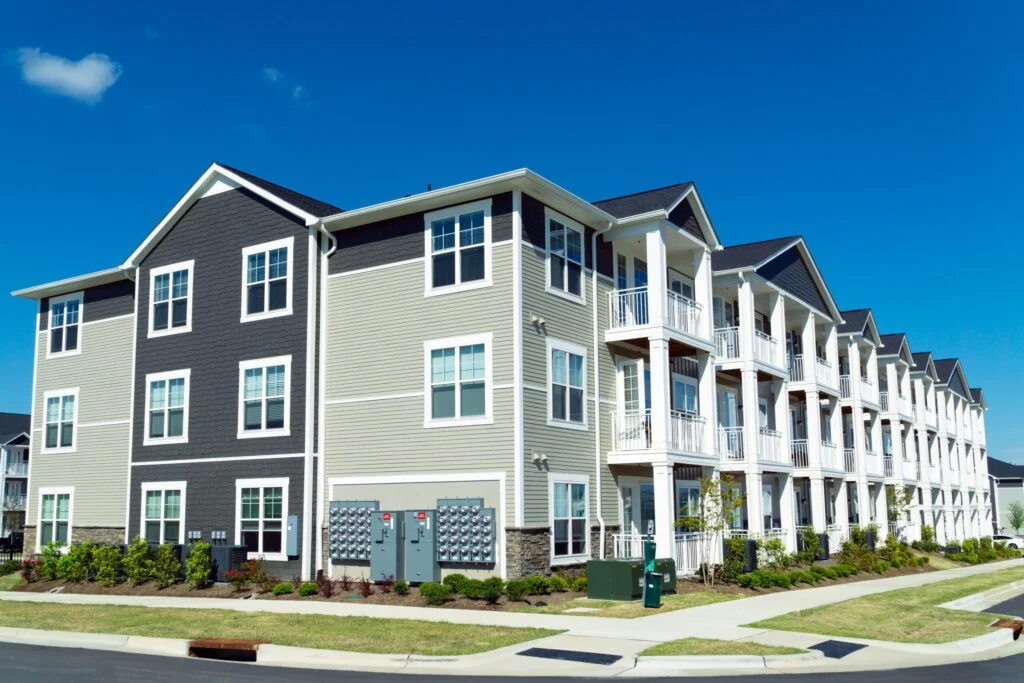Rent increases are a common concern for tenants, and understanding the regulations surrounding them is crucial for both landlords and renters. In this guide, we’ll delve into the key factors that determine ‘how much can a landlord raise rent?’ and the rules governing this process.
Local Rent Control Laws
The first factor to consider when contemplating potential rent increases is a meticulous examination of the local rent control laws, including how much can a landlord raise rent. These laws exhibit a diverse range of stipulations from one jurisdiction to another, creating a nuanced landscape for both landlords and tenants. In certain areas, stringent regulations are in place, defining not only the permissible frequency but also the percentage by which a landlord can increase rent.

For instance, cities like New York and San Francisco have established robust rent control measures, including limitations on how much a landlord can raise rent, to safeguard tenants from unwarranted and steep rent hikes. Therefore, conducting thorough research into your specific locality’s laws is paramount, as it lays the foundation for understanding the permissible parameters that govern rent adjustments and helps avoid legal pitfalls in the landlord-tenant relationship.
Lease Agreements
Lease agreements wield considerable influence over the dynamics of rent increases. These legally binding contracts often delineate the rules, conditions, and limitations surrounding adjustments to rent. It is crucial for tenants to meticulously review the terms of their lease agreements, as these documents can provide valuable insights into the mechanisms governing potential rent hikes.

Specific clauses may outline the frequency of adjustments, the notice period required, and any other conditions that must be met for a rent increase to be considered valid. This careful examination empowers tenants with the knowledge needed to ensure that any proposed rent increase aligns with the mutually agreed-upon terms, fostering transparency and fairness in the landlord-tenant relationship.
Notice Requirements
Notice requirements constitute a pivotal and legally mandated facet of the rent increase process, demanding meticulous attention from both landlords and tenants. The obligation for landlords to furnish advance notice to tenants serves as a crucial mechanism in fostering transparency, allowing tenants ample time to absorb and respond to impending changes in their rental terms. The duration of this notice period is subject to a multifaceted interplay between local laws and the specifics articulated in the lease agreement, necessitating a nuanced understanding by both parties.
Local laws play a significant role in shaping the temporal aspects of notice requirements. Jurisdictions may differ markedly in their stipulations, with some areas prescribing a minimum notice period of 30 days, while others may mandate a more extended period, extending to several months. This variability underscores the need for tenants to be cognizant of the legal framework governing their rental arrangement, as failure to comply with these notice requirements may have legal consequences for landlords.
Equally important is the contractual dimension encapsulated in the lease agreement. Landlords commonly articulate the specifics of notice periods within the lease, establishing a contractual framework that both parties are bound to uphold. Tenants, therefore, must meticulously review their lease agreements to discern the outlined notice requirements, recognizing that these contractual provisions supplement and may even surpass the statutory stipulations of local laws.
Increase Caps
Some jurisdictions have implemented rent increase caps to protect tenants from drastic and arbitrary hikes. These caps establish a maximum percentage by which a landlord can raise rent within a specified timeframe. Familiarizing yourself with these caps is crucial, as they serve as a safeguard against disproportionately high rent increases. Prospective tenants should be proactive in researching and understanding the rent increase caps in their desired rental location, allowing them to make informed decisions and negotiate fair terms with landlords.
Market Conditions
The local rental market’s conditions play a pivotal role in determining a landlord’s flexibility in implementing rent increases. In dynamic and competitive rental markets, landlords may find greater latitude to raise rents, driven by high demand for housing. Conversely, in markets saturated with an oversupply of rental properties, landlords may encounter constraints dictated by prevailing economic conditions. Prospective tenants and landlords should conduct a comprehensive analysis of the local market dynamics, enabling them to anticipate and navigate the potential impact of market forces on rent adjustments effectively.

Improvements and Maintenance
Another crucial factor influencing the permissible increase in rent pertains to property improvements and maintenance costs. Landlords typically have the right to adjust rent if they have undertaken substantial improvements that enhance the property’s overall quality or if maintenance costs have risen. For example, renovations such as updating appliances, installing energy-efficient systems, or addressing structural issues can be legitimate justifications for a rent increase.

Understanding the rationale behind a proposed rent hike is essential for both landlords and tenants. Tenants benefit from transparency, as it enables them to assess the tangible enhancements made to the property, while landlords ensure that their actions align with local regulations, avoiding potential disputes and legal complications. This insight into the justification for a rent increase fosters a collaborative and informed landlord-tenant relationship, where both parties can appreciate the value added to the property and the necessity for a corresponding adjustment in rent.
Government Incentives and Tax Breaks
Government incentives and tax breaks play a pivotal role in shaping the dynamics of the landlord-tenant relationship, particularly in regions where authorities actively encourage property improvement, energy-efficient upgrades, and various enhancements. These incentives, often designed to promote sustainable practices and stimulate economic growth, can significantly impact landlords’ decisions to invest in property enhancements.

Landlords who choose to capitalize on these government incentives may find themselves better positioned to shoulder the costs associated with improvements. However, it is not uncommon for these landlords to offset a portion of their expenses by implementing moderate rent increases. This practice, while seemingly straightforward, underscores the interconnected nature of economic policies, property management, and the rental market.
Communication and Negotiation
Communication and negotiation stand as cornerstone elements in the intricate process of rent increases, particularly in the context of property improvements and maintenance-related adjustments. Landlords are advised to adopt a proactive stance in communicating with their tenants, offering transparency and clarity regarding any planned enhancements to the rental property. This involves not only detailing the nature of the improvements but also providing a breakdown of associated costs and elucidating the expected benefits that these upgrades will bring to the living environment.
By establishing open lines of communication, landlords create an environment where tenants can gain a comprehensive understanding of the value being added to their living spaces. This transparency is crucial in building trust and fostering a sense of collaboration between landlords and tenants. It also serves as the foundation for engaging in meaningful negotiations regarding the terms and timing of any proposed rent increases.
Negotiation, in this context, is not merely a transactional exchange of figures; rather, it is an opportunity for both parties to express their perspectives and concerns. Tenants, armed with knowledge about the planned improvements, can actively participate in discussions about the financial implications of such enhancements. This collaborative approach allows for a more nuanced exploration of the feasibility of rent adjustments and establishes a platform for compromise.
Navigating the waters of rent increases requires a solid understanding of local laws, lease agreements, and market conditions. Tenants should be aware of their rights, while landlords must adhere to the legal frameworks in place. By staying informed and communicating effectively, both parties can contribute to a positive and fair rental experience.









